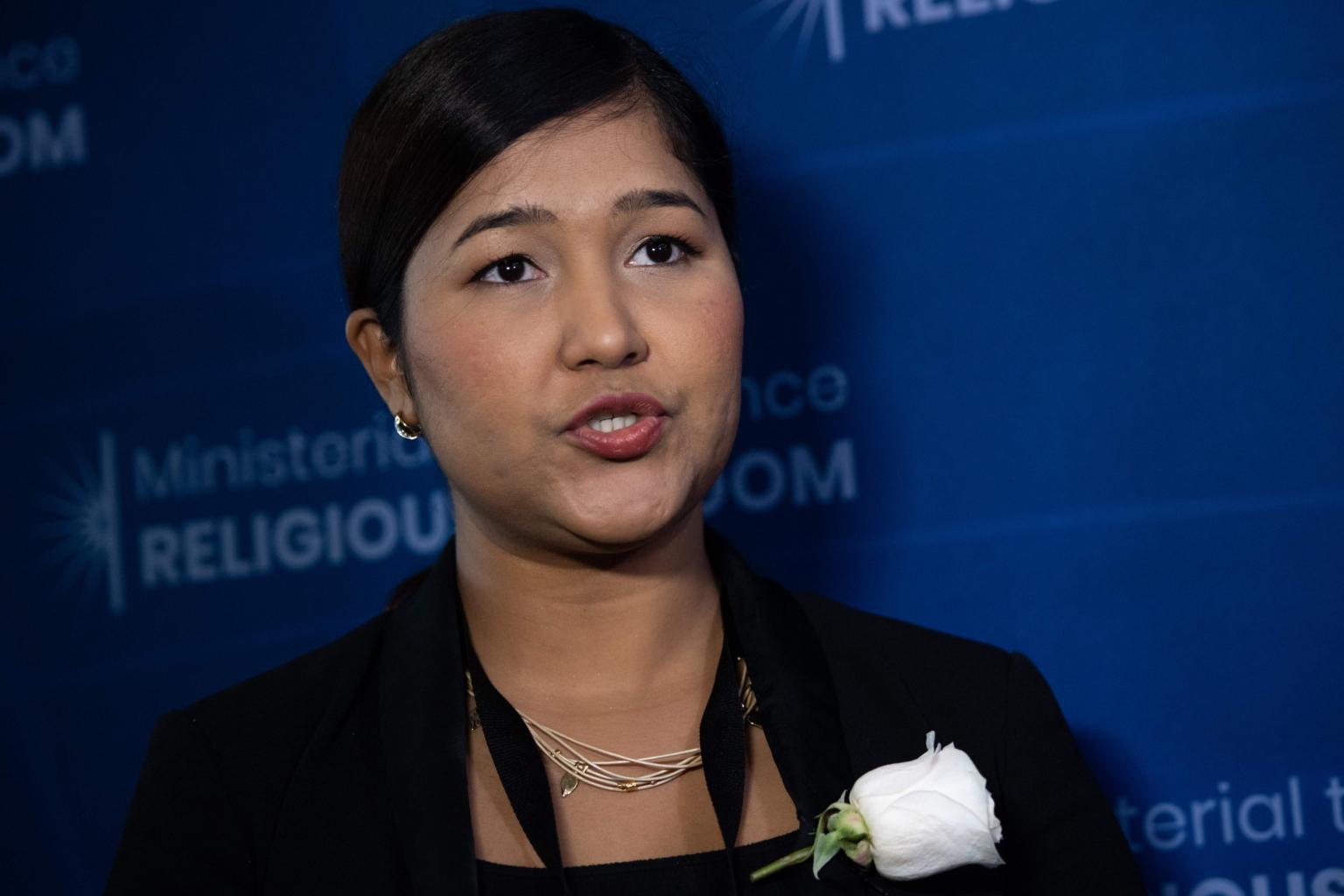Rohingya activist says US ban on Myanmar generals a first step
Sign up now: Get insights on Asia's fast-moving developments

Wai Wai Nu, an advocate for Rohingya Muslims in Myanmar, speaks during an interview at the State Department in Washington, DC, on July 17, 2019.
PHOTO: AFP
WASHINGTON (AFP) - A formerly imprisoned Rohingya activist said Wednesday (July 17) that a US ban on Myanmar's top generals was a welcome first step but urged more action to support the long-targeted minority.
The State Department on Tuesday (July 15) said that army chief Min Aung Hlaing, three other top officers and their families would not be allowed to visit the United States due to their roles in "ethnic cleansing" of the mostly Muslim Rohingya.
Participating in a high-level State Department meeting on religious freedom, peace activist Wai Wai Nu said it was critical to address the "decades-old impunity" enjoyed by the military in Myanmar, formerly known as Burma.
"Many of us in Burma welcome this decision of the State Department. However, we think this is a first step and we are hoping to see more concrete and efficient steps in the future," she told reporters.
This, she said, should include an end to impunity in the country.
"The only way to move forward, I believe, is holding the perpetrators accountable and abolishing institutionalised religious and ethnic discrimination against ethnic minorities," she added.
Wai Wai Nu founded two groups promoting inter-ethnic harmony and women's rights. Along with other survivors and witnesses to abuses who are taking part in the ministerial, she met Wednesday at the White House with President Donald Trump.
Wai Wai Nu, whose father was also an activist, was arrested with her family in 2005 when she was a law student.
The family was freed in 2012 amid a political opening in Myanmar as the military junta reconciled with the West and eventually allowed civilian, elected leaders.
In 2017, Myanmar's military launched a campaign against the Rohingya that led about 740,000 to flee to neighbouring Bangladesh amid accounts of brutal attacks on whole villages.
The army denies wrongdoing and says it was responding to militant attacks.
The Rohingya are widely despised in the country and do not enjoy citizenship, with the government calling them "Bengalis," suggesting they are illegal immigrants from Bangladesh.


